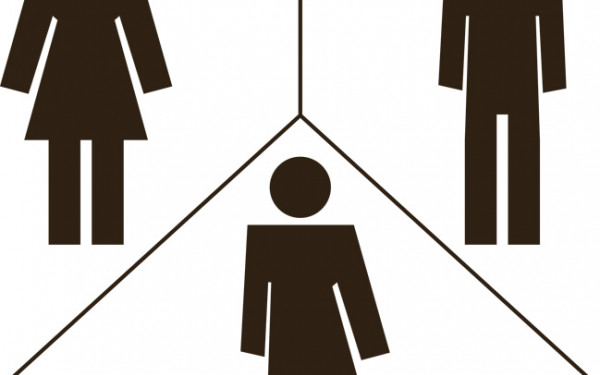Transphobic Reality
Day of Remembrance Acknowledges Transgender Deaths
Roughly 40 well-layered people congregated in Berri Square on a rather chilly Nov. 20 to recognize the fifth annual Transgender Day of Remembrance.
On a day where trans people, their allies and loved ones publicly acknowledge transphobia—“the confusion, misunderstanding, fear, and outright hatred that trans people face on a daily basis,” as one of the organizers put it, many people held aloft signs proclaiming their belief in Vie et dignité.
Local organizers PolitiQ and Aide aux transsexuels et transsexuelles du Quebec encouraged folks to come out of their nooks for this event, invited them to speak and share their experiences with transphobia, or just encourage their trans brethren.
Natalie, a participant originally from Vancouver, pointed out that the “fear and risk of violence, whether or not we’ve experienced violence, can be internalized [and] that fear can limit our actions.
“There are people who feel they don’t have that courage to transition because of that retribution. It’s marked in blood that there is a [gender] line that you cannot cross. It can constrain people and put them in little boxes.
“You do not want to have your gender be an apology. I don’t want to allow myself to be forced into a specific destiny just because of my biology.”
Another participant, Kayla Hallam, shared that she had recently quit her job because a co-worker was harassing her.
“My boss didn’t want to take two minutes out of his life to tell my co-worker that it’s not okay to say those things,” she said. “I’m there to work, I’m not there to be discriminated against for wearing dresses.”
The Day of Remembrance was first organized in 2007, though the website transgenderdor.org lists events as far back as 1998, such as a candlelit vigil in San Francisco meant to raise awareness of the murder of Rita Hester.
Hester, a transgender woman, was stabbed in her apartment in Allston, MA that year. No arrest was ever made in the case.
“Transphobia is swept under the carpet,” said Sonya, a participant who asked to only be identified by her first name. “It’s accepted institutionalized discrimination. We have to fight the system here to tell them that this is contradictory to the Charter of Human Rights.”
Catherine, who moved to Montreal from Texas, voiced similar sentiments, encouraging trans people to “watch your back!”
Some saw the event as an opportunity to stay connected, however. Samuel Oake Brisson, who lives off-island, said that he came to stay up-to-date on what is going on in the trans community in relation to the government. He said that he wished that people were more knowledgeable about trans people and their struggles.
“I talked to someone about it. She said, ‘So is that the same thing that happened to Chaz Bono? So are you a boy or a girl?’” He laughed. “I just want to let people know, we don’t bite!”

2_900_598_90.jpg)



1_600_375_90_s_c1.jpg)

